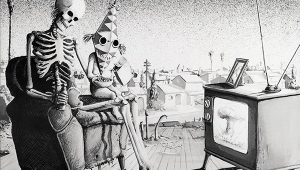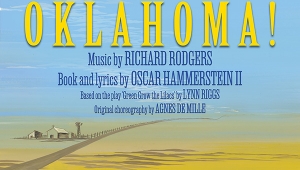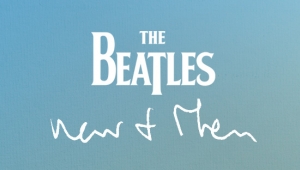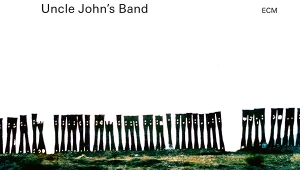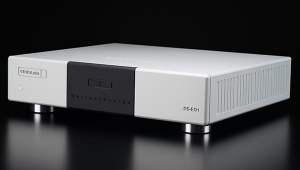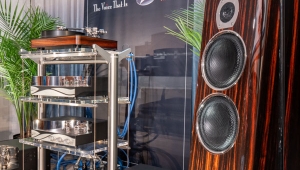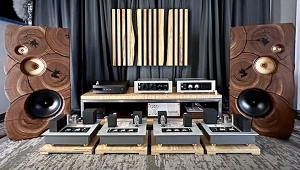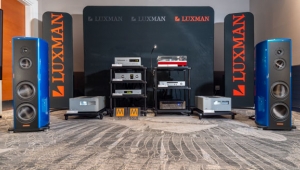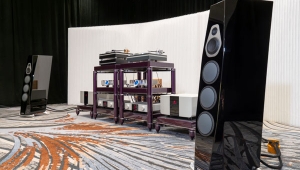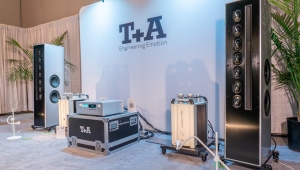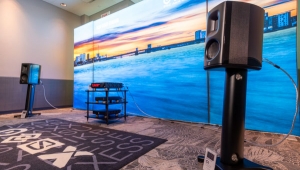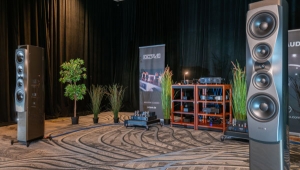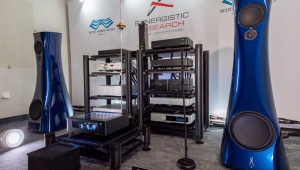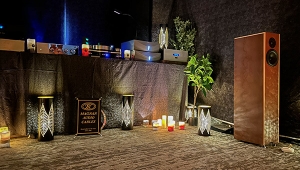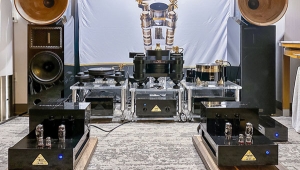| Columns Retired Columns & Blogs |
February 2021 Pop/Rock Record Reviews
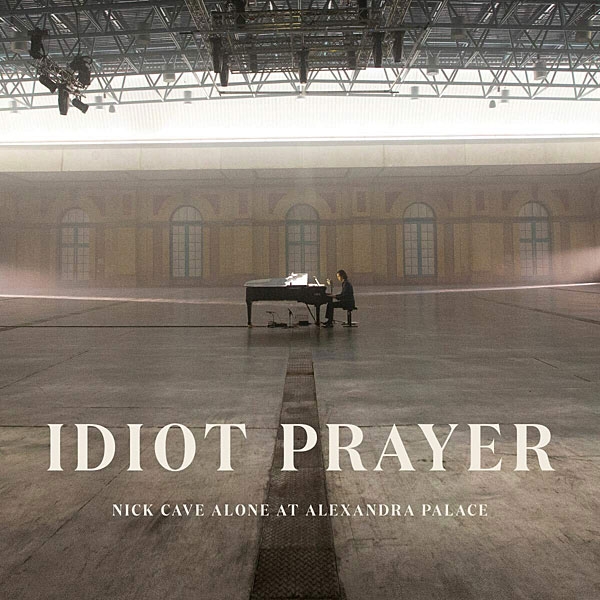
Nick Cave: Idiot Prayer: Nick Cave Alone at Alexandra Palace
Bad Seed Limited B08GV91Y6Q (LP). 2020. Dom Monks, Cave, prods.; Matt Coulton, eng.
Performance *****
Sonics ****
Bad Seed Limited B08GV91Y6Q (LP). 2020. Dom Monks, Cave, prods.; Matt Coulton, eng.
Performance *****
Sonics ****
This double album, and the accompanying film, were recorded at Alexandra Palace in June 2020, when London was in full lockdown. Ally Pally, as it's affectionately known, sits in grandeur atop a hill, looking out over glorious panoramic views of the city—now deserted because of a fear of a microbe. It was a scene repeated across the world, as everywhere fell silent.
This sense of isolation is captured on the stunning sleeve of this LP, a still from cinematographer Robbie Ryan's film of this streamed concert. Nick Cave sits alone at his piano in the vast hall, light streaming in. It's worth the purchase on vinyl, just for the photograph.
In their starkness, the songs match the image. These are songs of grief and remorse, of fear but also hope. None were written for the pandemic; all come from his extensive back catalog, including his work with the Bad Seeds. Yet, they form the perfect commentary on this time.
They are totally stripped-down versions. No other musician is present, just the piano to accompany his words. Cave's deep, booming voice is at times as righteous as an Old Testament preacher, whilst at other times it's as gentle as a lover. His songs often reference religion, so when an almost biblical plague is affecting humanity, they resonate more than ever. They speak to the time while articulating the strength of the human spirit.
This is a remarkable album. Cave fans will love it, but even those ambivalent about Cave (like me) should give it a listen so as to experience its raw power. Ally Pally is just down the street, but this album, with its themes, message, and hope, is global.—Phil Brett
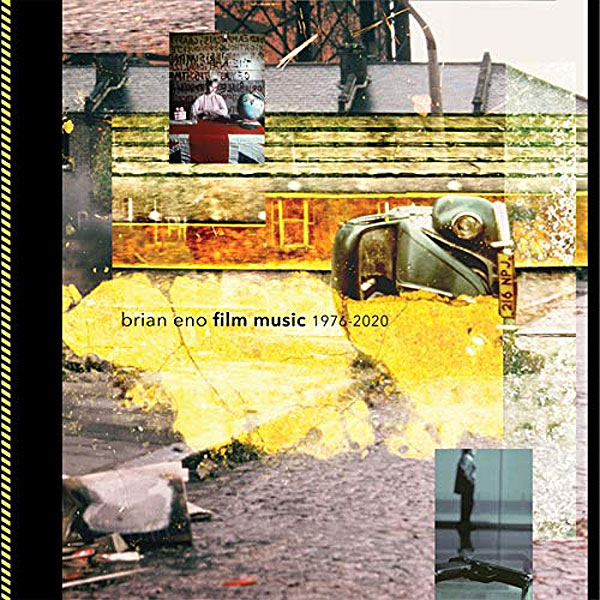
Brian Eno: Film Music 1976-2020
Opal Records 073 571-9 (2020). Eno, prod.; Various, engs.; Miles Showell, mastering.
Performance ***½
Sonics ****½
Music from soundtracks is a funny beast: Can the music be judged fairly on its own merits, without visuals? What if it brilliantly complements the scene but isn't much fun to listen to without it? What if the opposite is true?
Whatever the answers to these questions, with this Brian Eno compilation, the music has to stand alone, if for no other reason than that I've only seen a third of the television shows and films they're sourced from.
Not that it loses out on that score (pun intended). Famously, Eno often composes soundtracks without seeing the film. And he has repeatedly proved that, among his many other attributes, he is an accomplished composer.
There are some simply beautiful pieces of music here. Sonically, this music has a clear but warm feel, across a range of styles, whether that's "Prophecy Time," which is majestic, sounding cathedral in scope, or the exquisite delicacy of "Ship in a Bottle." The standout track, "Final Sunset," reminds me of the work he did with David Bowie on Low.
With any album, there are likely to be tracks that don't click, and with a compilation spanning 40 years, all the more so. That's true here: "Deep Blue Day" and "You Don't Miss Your Water" sound like country and western music with synths. Musical mashups can be fun, but they aren't always. Listening to these tracks made my teeth ache.
Despite the varying shades of tone and the years that separate the tracks, this is an album that hangs together. It's more than background music, whether to a movie or to one's own life. Film Music is something to lose yourself in.—Phil Brett

Anna McClellan: I Saw First Light
Father/Daughter Records (16-bit/44.1 kHz streaming on Qobuz). 2020. McClellan and Ryan McKeever, prods.; McClellan, McKeever, Carl Saff, engs.
Performance ***
Sonics ***½
Anna McClellan is a Nebraska native who tried New York City and went home. She wears that journey as a badge of honor on her third album, I Saw First Light, created with fellow Nebraskans. The result is self-consciously unpolished, celebrating whatever the opposite is of coastal-city slickness.
McClellan and Ryan McKeever's coproduction seems intent on avoiding artifice, as if the songs are in charge of their own sound. The simple piano chords that open "Con S Sewer" multiply unfettered into layers of drums, sax, and fiddle. By the bridge, the accompaniment has grown so dense that the voice is nearly swallowed. "Raisin" goes retro with a New Wave–style electric keyboard line, a surprising match to the jazz syncopation and meter-defying lyrics. Motown girl groups get a nod in the music of "Desperate," but McClellan defies expectations with her stripped-down solo vocal and humorous, conversational lyrics about wanting love.
Nothing is quite what it seems, and everything is intriguing. On the comically sad love song "Veronica," McKeever sings harmony just a hair off the rhythmic mark, as he might while walking a friend home from a party. This album brings to mind the early days of punk, when part of the message was in sounding like you'd just picked up your instrument for the first time—yet here, Sean Pratt's robust guitar work hints that this is all an act. Still, the act works. McClellan's lyrics portray a young woman trying to figure out her identity and her home; her music is a straightforward roadmap to her complicated thoughts. She's not interested in fancifying the route she's taken.—Anne E. Johnson
- Log in or register to post comments








